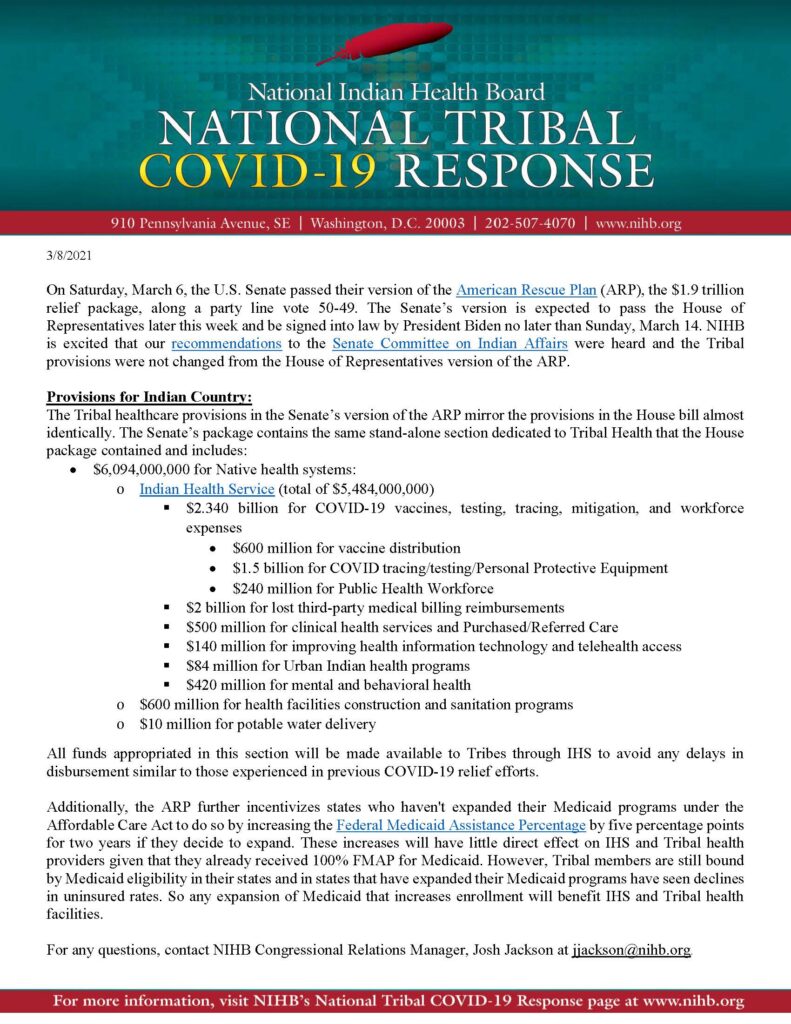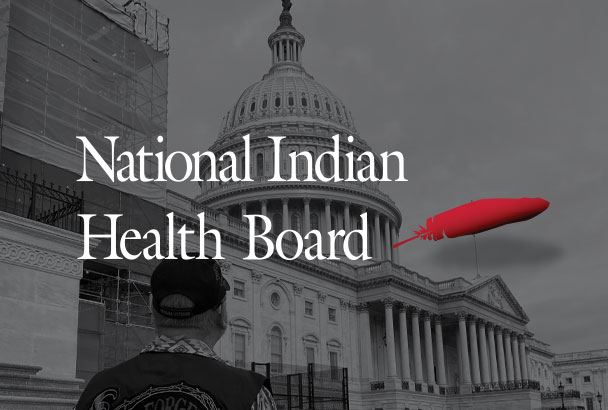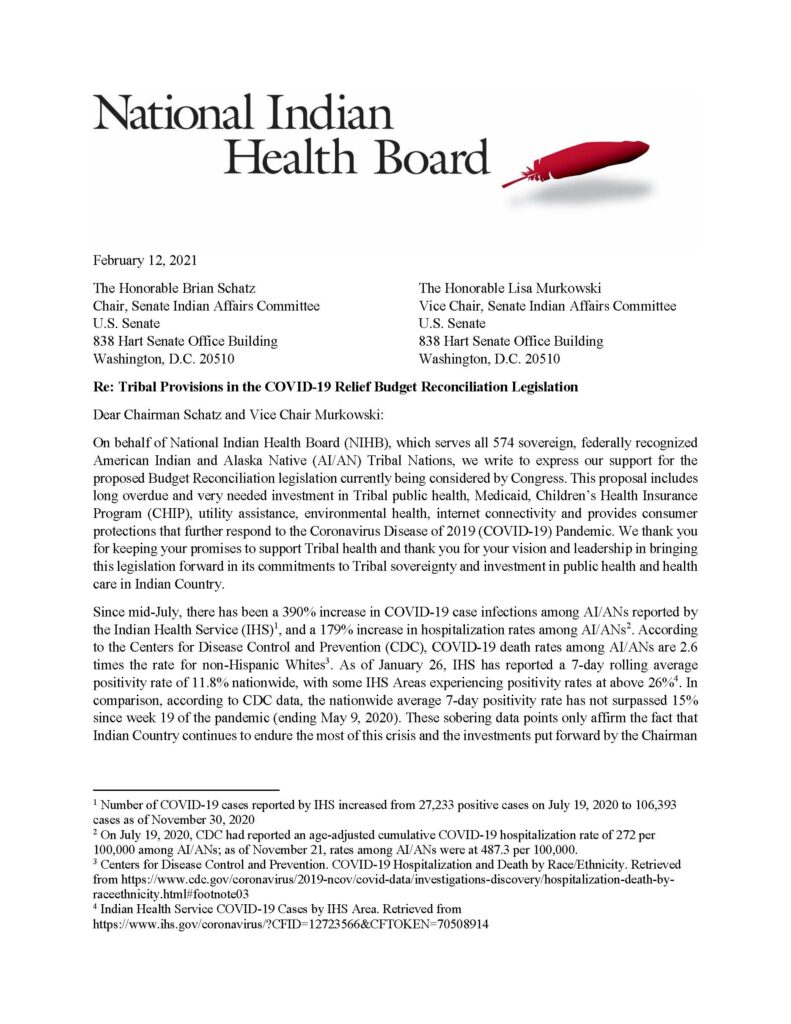
NIHB Updates
Home » NIHB Updates » Page 5
Recent Updates


- March 8, 2021·
NIHB Joined by Nine National Native Organizations in Letter to President Joe Biden to Request Prioritization of American Indians and Alaska Natives in Washington, DC Metropolitan Area for COVID-19 Vaccines

- March 8, 2021·
National Indian Health Board Releases 2021 Legislative and Policy Agenda, Roadmap for Biden Administration

- March 1, 2021·
NIHB Submits Testimony to House Energy and Commerce Subcommittee on Health on Tribal Priorities for COVID-19 Vaccines

- February 12, 2021·
NIHB Supports Budget Reconciliation Package with Letter to Senate Committee on Indian Affairs

- February 11, 2021·
NIHB Submits Letter of Support for House Energy and Commerce Budget Reconciliation Legislation

Contact Us
To reach the NIHB COVID-19 Response Team, please contact [email protected].
For media inquiries, please contact Ned Johnson at [email protected].
© Copyright 2020, National Indian Health Board. All Rights Reserved. Website by DrawBridge Creative.
This website is supported by the Centers for Disease Control and Prevention of the U.S. Department of Health and Human Services (HHS) as part of financial assistance awards totaling $2,000,000, Tribal Capacity Building for COVID-19 Disease Control, and $4,000,000, Addressing COVID-19 Vaccine Confidence Through Tribal Health Departments, with 80 percent funded by CDC/HHS, and 20 percent funded by non-government source(s). The contents are those of the author(s) and do not necessarily represent the official views of, nor an endorsement, by CDC/HHS, or the U.S. Government.

